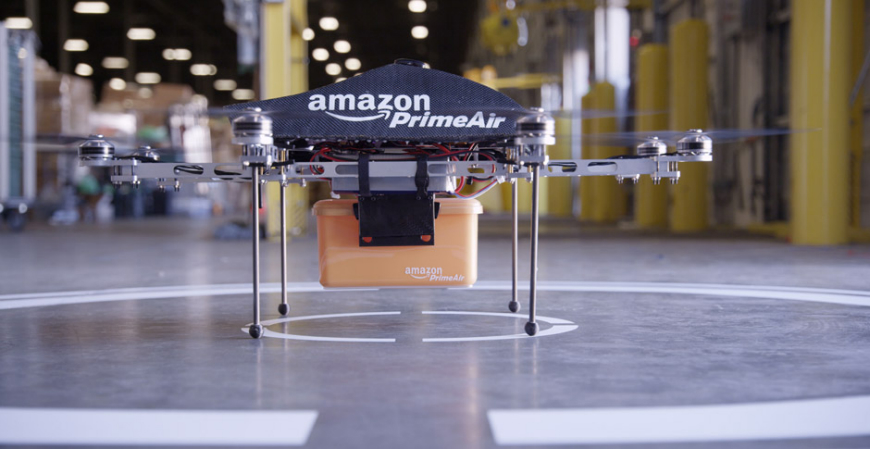Let’s face it: The chances that the federal government will let Amazon fly delivery drones around in densely populated areas by the end of 2015 are basically slim to none. So why did Amazon bother putting on a big show about its delivery drones for CBS’s 60 Minutes earlier this week? Wired’s Marcus Wohlsen and Forbes contributor Will Burns each suggest two plausible explanations that make Amazon look either very cynical or merely somewhat cynical.
First, Wohlsen’s very cynical explanation: Amazon just wanted to get good press ahead of the holiday shopping season. That Amazon chose to open up on its drone delivery program on the night before Cyber Monday should of course raise eyebrows and it’s clear that the company doesn’t mind having everyone know that it’s supposedly working on the world’s most cutting-edge package delivery system. This explanation is the simplest to understand and is certainly the most plausible since Amazon essentially got itself a free infomercial on America’s most popular TV news magazine.
Burns’ explanation is somewhat less cynical and somewhat more nuanced. He thinks that Bezos and company are essentially floating a trial balloon to see how the general public responds and to then figure out the public relations challenges that Amazon will face if it ever really does decide to deploy a fleet of unnamed aerial drones for package delivery.
Essentially, Burns thinks Amazon knows that drones are a hard sell, largely because they’ve been used primarily as either killing machines or surveillance vehicles. Since nobody likes the thought of having a flying kill-bot lobbing cruise missiles in their neighborhood, Amazon will have to do some work to show people the kinder, gentler side of drones.
“What Bezos has done here that is so genius from a marketing standpoint is this: he’s started the debate now, before he’s even perfected the octocopter technology and before it’s even legal, so that the public will start the long process of self-normalizing the concept of an octocopter in the first place,” Burns writes. “He knows that the technology is not only disruptive, but so visibly disruptive that waiting for the technology to be ready and launching an expensive advertising blitz making flat promises won’t cut it. Bezos knows it will take time, not advertising, to normalize this disruption.”






